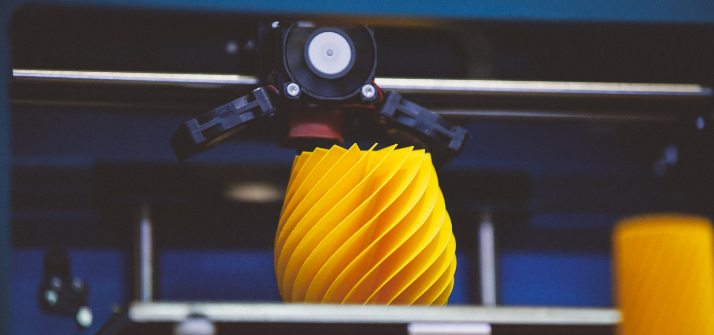3D printing

3D printing – or additive manufacturing to give it its proper name - has been around since the 1980s. However, in recent years, the technology has developed rapidly and become much more high-profile.
The types of materials used have also evolved from plastics and polymers to include metals and biomaterials. For example, there have been a number of recent breakthroughs involving the 3D printing of human organs, and NASA recently funded the development of a 3D food printer for astronauts in space.
From trainers to pharmaceuticals and entire houses, there’s almost nothing these days that can’t be 3D printed.
Career opportunities within the sector
The additive manufacturing sector is small but growing rapidly. It is worth around £6bn and growing at the rate of 20% per year.
Below are some examples of the types of roles and job titles in the sector. However, bear in mind that as an evolving sector, opportunities and job roles are always changing, so it is important to do your research and keep up-to-date with the sector.
If you are interested in working in this area:
- consider taking relevant modules as part of your degree
- gain experience through work shadowing or internships
- take an interest in the technology by following organisations and companies on social media
- keep up to date with industry news with sites such as Additive Manufacturing Today
Research and development roles
As a relatively ‘young’ industry, much of the sector is still very much R&D led, as technologies and materials continue to be explored and developed. This means that there are a range of PhD and post-doctoral roles in research groups such as the University's Centre for Additive Manufacturing.
PhD graduates may then progress on into R&D roles within industry. As a small close-knit sector, many of these positions are filled through networking and word of mouth. Roles in this area require a specialist depth of knowledge in a range of scientific and engineering areas including materials science, software development and manufacturing engineering.
Example job title: Research associate in 3D printing advanced materials
Consultancy roles
The potential for widespread application of 3D printing technologies has also led to the development of a number of ‘spin-out’ companies such as Nottingham’s Added Scientific.
They offer technical and consultancy services to businesses to help them understand how they could utilise and benefit from additive manufacturing technologies.
Effective consultants require breadth of knowledge, flexibility, good interpersonal skills and commercially savvy. They need to understand manufacturing processes and quickly gain a deep insight into the client’s industry. Recruitment to these roles could be at PhD or masters level.
Example job title: Research analyst or graduate consultant
Manufacturing engineering roles
As additive manufacturing technology becomes more widely used, there are increasing numbers of opportunities with:
- contract manufacturers such as 3T who offer production facilities on behalf of clients
- large client organisations who are starting to invest directly in 3D printing technologies for the production of specialised products, for example Johnson & Johnson
- companies who produce 3D printing machines themselves such as Renishaw.
Recruitment to these roles is often at degree or masters level.
Example job title: Additive manufacturing applications engineer
Commercial and technical roles
There are a range of roles available to support the technical and commercial aspects of the additive manufacturing industry, for example technical sales, marketing, technician and, repair and maintenance roles.
These roles may require less specific qualifications, but will still look for applicants with a good technical knowledge, an interest in and understanding of 3D printing, and relevant skill set for the position. Technical sales people, for example, will also require good communication and interpersonal skills along with a good understanding of the technology.
Example job title: Graduate technical sales executive, technical assistant, CAD technician